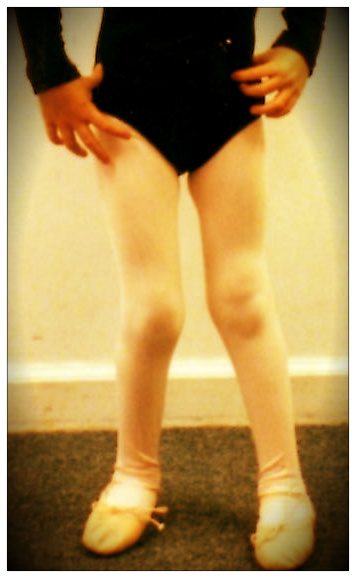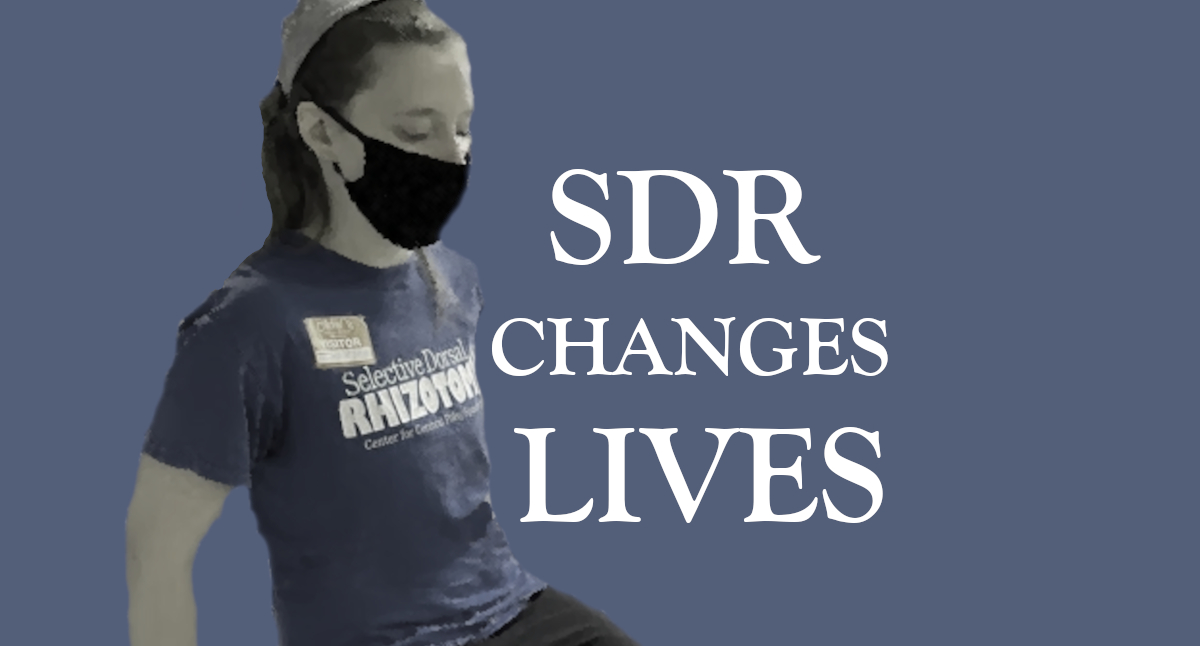I remember coming home from second grade and staring at my crooked legs in the mirror. I had watched my classmates on the playground that day. I stood back, quiet and still amidst their shouts and laughter, part envy and part curiosity as they effortlessly ran and skipped and jumped, their bodies obeying the secret language their neurons spoke to their muscles. A language my neurons did not speak.
My brain was good at reading, at writing, at numbers, I thought. Maybe if I tried hard enough, I could learn this too.
But I found that it didn’t matter how long I stood in front of that mirror; it didn’t matter how long I tried to get my legs to move like theirs. My muscles clenched. My knees caved inward. My ankles collapsed. No matter how long I studied their movements, it didn’t matter.
Two years later, in one of my countless physical therapy sessions, I stood watching my therapist as she mimicked my gait.
“I want less of this,” she had said, knocking her knees into each other with each step. “And more of this.” She straightened up.
A pang in my chest. There it was—the language I had tried to learn. The language my body could not speak. I felt my cheeks burn as I tried in vain to match my movements to hers.
I don’t remember what she said after that, but I remember what I felt in that moment:
I am not enough the way I am.
No matter how hard I try, I will never be enough.
It would be nearly another decade before I found people who moved through the world like I do. People whose muscles clenched and knees knocked, whose bodies spoke the same language as mine.
And that’s when I finally set down that heaviness—a heaviness that had been with me so long I had forgotten I was carrying it.
That’s when I finally realized:
I don’t need to give less of who I am.
If I could go back in time to eight-year-old me—to ten-year-old me—first I would wrap her in a hug.
And then I would tell her
You don’t need straight knees and fluid movements to be whole.
You are enough.
Just as you are—
you are enough.
As an addendum to this post, I want to take a moment to share that I have always been blessed to have been surrounded by so many friends and family members who have loved me for who I am. I have also had some incredible PTs and personal trainers who have guided me in ways that didn’t make me feel less than—who listened to me, cheered me on, respected my goals, and helped me reach those goals—and for that I am so grateful. I believe that even the PT I mentioned in this post had good intentions and truly was trying to help me, and I am grateful for that too.
I don’t believe that gait training is inherently harmful (and in some cases it has helped me!)—but the way in which that feedback is framed can make a world of difference, especially for a child. ♥


I feel like there are so many specifically in the CP community who could relate to your post. The horror and sadness of having a full-grown adult mimick a child’s gait — and I was that child as well — well, I just don’t know how that CAN’T be harmful. At least not without some intensive discussion first. You are and always have been enough, and I wish little you had known that.
Gosh, Kerry, this post just had me all choked up. I am so sorry you were treated this way and I think it’s so important to note that even well meaning adults are capable of making mistakes and doing harm in this way. I’m so sorry little you had to go through this. I wish we’d known each other sooner and had this lovely sense of community we do now. Couldn’t have said it better than Tara: you are, always have been, and always will be enough. 🩵
Thank you so much, Tara. You have shown me again and again and again that I am (and always have been) enough, and I am so grateful for that. I love you. You are enough too, today and yesterday and tomorrow and always.
Kayla, thank you so much for the kind words and validation! I wish I could have found you sooner too; I am so grateful for you and the beautiful community we have created.
Dear Kerry,
Your writing is always so beautiful and relatable. Everyone in the CP community knows what it’s like to have those “knocking knees, weak ankles, and tight muscles.”
Having CP has also taught us how to be strong, overcome various obstacles, and You have to learn to deal with not just physical obstacles but ignorant attitudes and a non-inclusive world. Although, Jesus, our family, and friends love us with all their heart.
Being different is an opportunity for great uniqueness that Jesus has set-us apart for greatness that no one else can achieve. In order to achieve greatness, you have to overcome every obstacle and every set-back to get there, which in turn calls for an amazing set- up- We will end up exactly where we are supposed to be- exactly where Jesus intended all along.
Thank you for taking the time to read my post and for leaving such a kind and heartfelt comment, Lindsey! I love that you frame this uniqueness as an opportunity–and a God-given one at that. I appreciate you!
Kerry you write so beautifully. Not surprisingly, PTs mimicking CP gait is a story I’ve come across a lot over the years, and every person who has shared their story describes how hurtful and non helpful it was. I am glad that you had some good PTs along the way as well and I truly hope this method of “teaching” has been moved on from over the last several decades.
Thank you so much, Alyssa. I have heard so many stories of this happening (and even more so after I published this posts and others with CP reached out). It hurts to know that so many with CP grew up feeling that they weren’t enough the way they are.
I remember reading Tara’s story about this experience (of a PT mimicking her walk) on Tonia’s blog. Just like that time, it brought tears to my eyes. Adults can be so violent without ever laying a hand on a child. With the best of intentions. That doesn’t matter when what they say & do cuts to the heart.
I love the way you described communication with your body as a language – so poetic and true, too. The line, “maybe if I tried hard enough” was the first tearjerker for me because god, how hard were you already trying, as a disabled kid, just to get through the day? Tonia taught me that people with CP expend 3-5 times as much energy as people without CP. At that’s not counting the emotional energy needed to cope with being different than your peers, being excluded, not knowing where or how you fit. You were trying so, so hard.
And that heaviness – oof. I felt that in my bones. What a weight, and what a feeling to release it and realize what you’ve been hauling around all those years. Thank goodness for community. I love you.
Emery, thank you so much for the kind and validating comment–this really meant a lot to me. I appreciate you so much, friend. Community can make such a huge difference, and I’m grateful you found it too. I love you too.
As a Physiotherapist this post was so hard to read. It has made me reflect on the language I may have used in the obstacles, which with good intentions, could have harmed a child’s emotionally well being more then it helped their physical. I hope that more therapist read your posts to get better insight into how Physiotherapy impacts the whole person.
Thank you so much for reading and–especially, for reflecting; it takes a lot of courage to do that. Life is a continual journey of learning and improving, so I hope you give yourself grace for those situations you now realize you would have handled differently in hindsight.